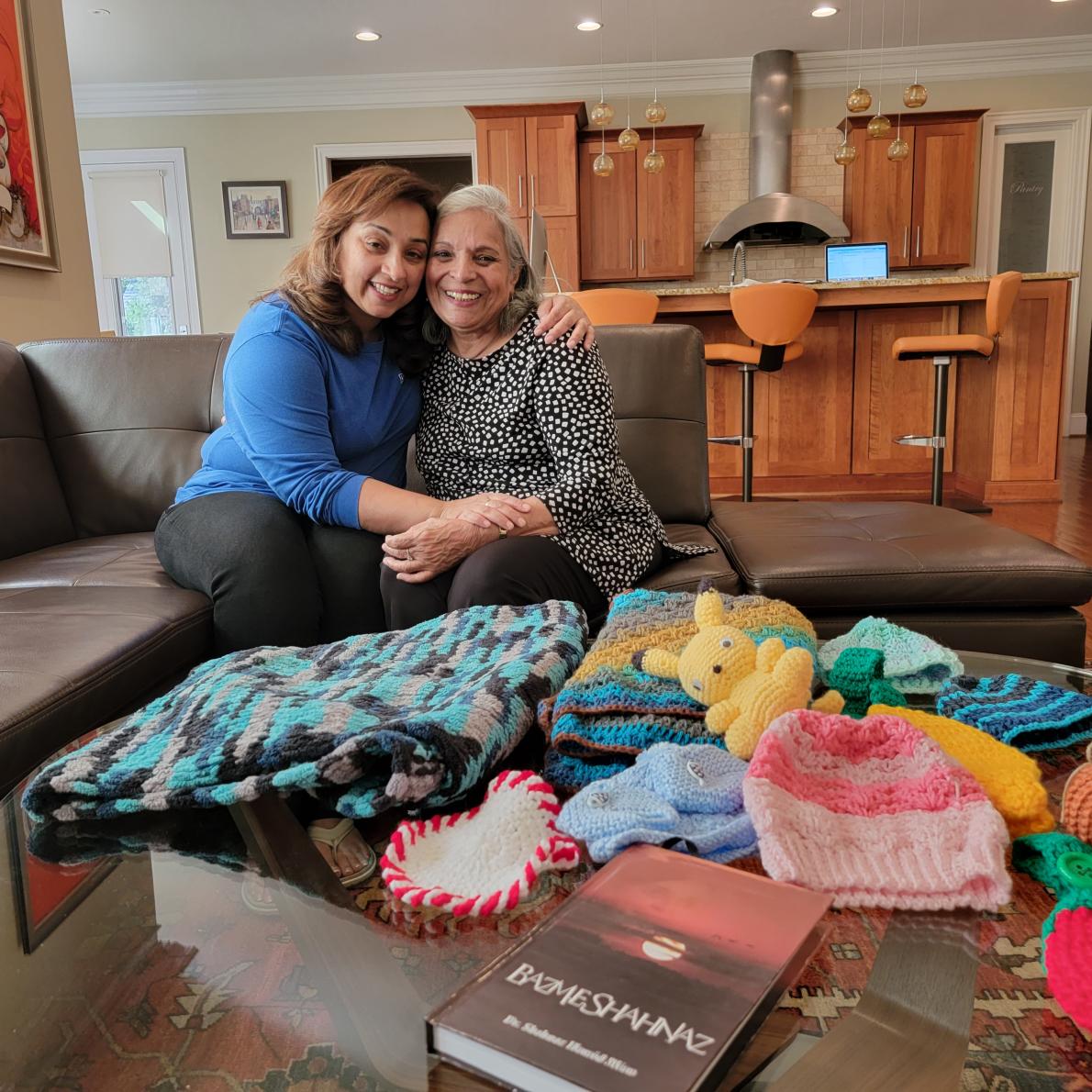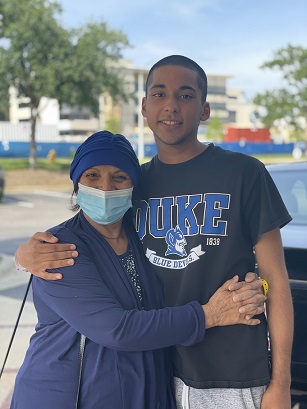Mother-Daughter Doctors Navigate Cancer Journey Together with Goal Concordant Care

Dr. Shanaz Mian knew something was wrong before she diagnosed herself with ovarian cancer in May 2021. From her own training and decades of work as an obstetrician and gynecologist in her native Pakistan, she also understood what the diagnosis meant in terms of the many major health care decisions that lay ahead for her and her family.
A vibrantly beautiful, kindly graceful, and vivaciously intelligent woman with a brilliant smile at the ready, Dr. Mian also believes that while the ultimate quantity of life is up to God, the quality of her life over the course of the disease is hers to decide.
With the help and support of her daughter, Nadia Pasha, MD, hospital medicine specialist at Duke Raleigh and an assistant professor in the division of General Internal Medicine, and her Duke caregivers, Dr. Mian is doing just that—living life on her own terms.
“My mother has been very clear—even before her diagnosis— what she wants for herself,” Dr. Pasha said. “She is a true believer that God has determined her quality and quantity of life and no one can change that, so she talks about how quality of life is something that people might have more leverage over.”
On My Terms
Dr. Mian is now retired from medicine but remains very active with the many intellectual interests she has cultivated over her life. She is the author of a book of poetry and prose. A passionate traveler, she has racked up the frequent flier miles and, prior to her illness, she volunteered at Dorcas Ministries, a social services organization in Cary, North Carolina that aids people in becoming stable and self-sufficient.

Always busy, she crochets and donates piles of colorful, intricately designed blankets and creatively crafts animals out of yarn for the younger patients at the WakeMed Cancer Center, a past time that she cherishes as much as she does giving back to her new Cary community.
“When I can no longer crochet and be of use to others,” she said, sharing a smile, “that is when I will no longer have the quality of life that I want.”
For both Drs. Mian and Pasha, both of whom have had substantial experience in counseling and caring for patients facing serious illness, having conversations about goals of care as part of Dr. Mian’s patient experience at Duke has been a positive, one that stands in contrast to the health care journey of their husband and father, Pakistani physician Dr. Abdul Hameed Mian, who died in Pakistan in 2003 his mid-50s from lung cancer.
“He knew what was coming, and it was really hard,” said Dr. Pasha, who was just out of medical school at the time. “He was in a different health system in Pakistan, so we ended up providing a lot of the support ourselves.”
Since her husband’s death, Dr. Shanaz Mian, has been visiting her daughter and other family members in the United States, and recently moved in with Pasha and her family in their Cary home.
Nine Cycles of Chemo
From May to September of 2021, she went through nine cycles of chemotherapy, six before having major surgery, and three after. It was a tough time, but she faced it with her daughter and care team that included palliative care physician Chris Jones, MD, MBA, associate professor in the division of General Internal Medicine and director of Outpatient Palliative Care for Duke Health.
“It was a rough ride but Duke and their support pulled us through,” Dr. Pasha said.
In March, Dr. Mian’s CA 125 cancer antigen blood test showed that her levels had started to rise again, so Duke gynecologic oncologist, Brittany Davidson, MD, joined the team. Together, they are monitoring Dr. Mian for further symptoms and she is doing well, Dr. Pasha said.
Ovarian cancer is different from the other cancers because when it comes back some times, it can be difficult to keep the symptoms under control. So, palliative chemo is recommended, a conversation that Mian and Pasha have had with Jones.
“In terms of being able to just have these direct, straightforward conversations and have this direct influence over the outcome of care, the tenor and nuance of it, helps take the burden of decision making off patients and their families,” Dr. Pasha said. “I've seen it within my own patient population, and I always encourage my own patients and their families to have these conversations earlier rather than later.”
For Dr. Mian, concordant care consultations are not very different from the way she has always practiced medicine, she recalls, offering support to patients as well as care for struggling mothers whose sick children she knew were not going to survive.
“I used to consult in the same way,” she said. “Life experience is different for doctors and some have such compassion for patient care like the excellent doctors I have here at Duke. All doctors need this skill.”